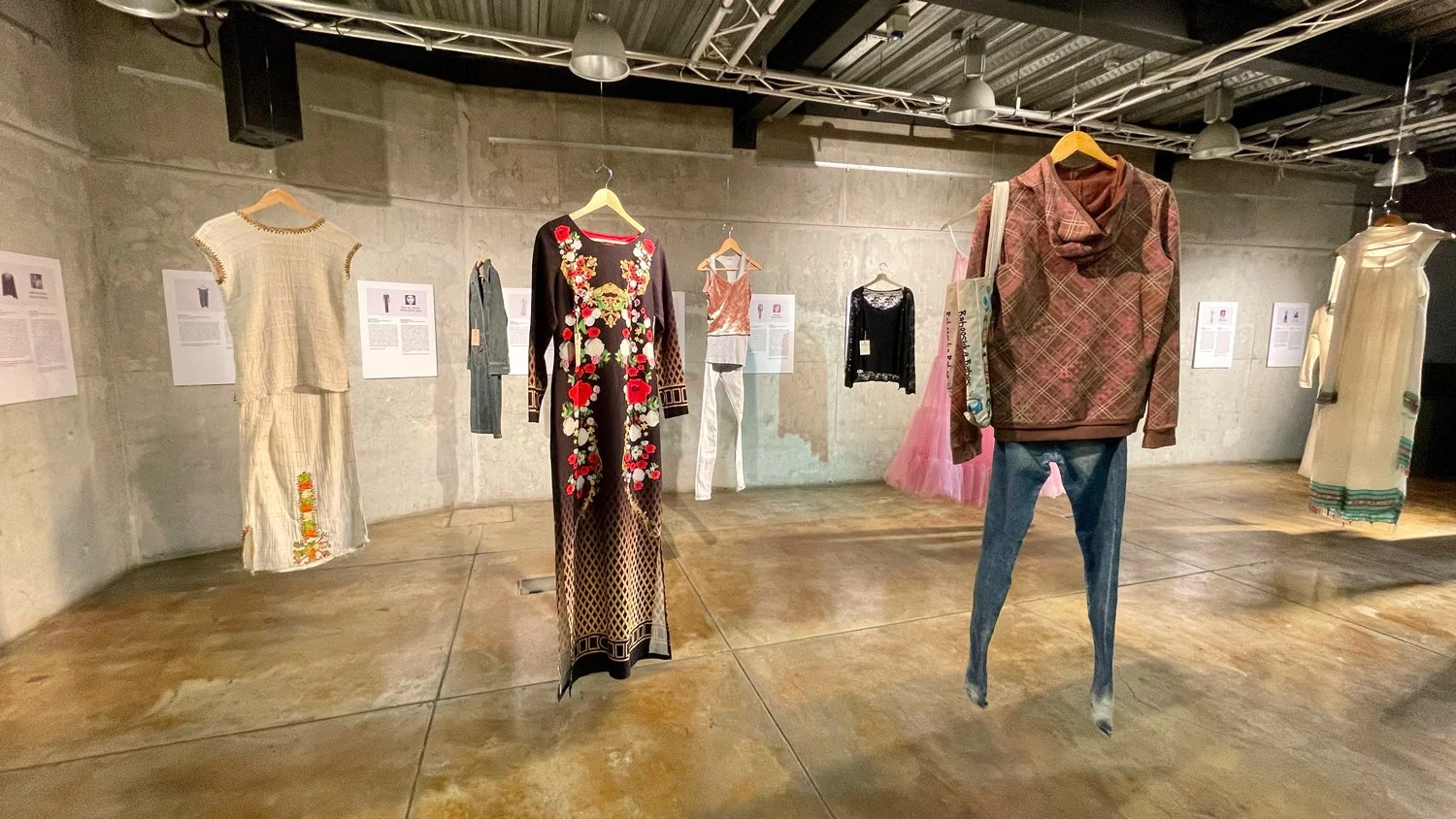She’s gone
She’s Gone is an art installation protesting the global phenomenon of gender-based murder performed by spouses and other family members. The installation sends a cry of silence on behalf of all innocent victims who were murdered because they were women. According to UN Women, approximately 47,000 women and girls worldwide are murdered by their intimate partners or other family members every year. Some cases have never been solved.
The installation was launched in 2017 at the official residence of the Israeli president and his wife, the late Mrs. Nechama Rivlin, who hosted the installation along with the Israeli victims’ families. The project was later exhibited in the Israeli parliament, various government and civil institutions, universities, and cultural centers across the country. It received vast coverage in all major media channels and was seen by hundreds of thousands.
She's Gone is now a global project traveling the world from city to city, presenting garments from across the world, calling out in solidarity for immediate action. Wherever we visit, we invite the relatives of local victims to add their loved ones' garments. The project was showcased at the 1st Global Conference on Sexual & Gendered Violence in Vienna, as well as at gender equality conferences in Geneva, Washington DC, Greece, Cyprus, China, the Czech Republic, Costa Rica, Aruba, Honduras, France, Romania, Brussels, and the UN’s Palais Des Nations in Geneva during the 51st Human Rights Council session. The opening events were graced by the presence of prime ministers, presidents, heads of parliaments, and local activists and advocates for social impact.
We wish to mark our journey at the UN building in New York on International Day for the Elimination of Violence Against Women with a global version of the installation.
Artist Statement
A green T-shirt, a pair of jeans, a long-embroidered dress, a faux-fur coat, a lucky sweatshirt, worn before every test, a top and a jacket, bought especially for a wedding.
These garments are silent testimonies of meaningful lives, filled with hopes and dreams, which were abruptly and violently taken. They bear within their fold’s tales of absence, grief, and orphanhood. Dafna and Anat, Fatma and Eleni, Malkam and Dua, Ganit, Irene, Salmelak, Katerina, and Iris are just a few of so many women and girls from various nationalities, religions, ethnic backgrounds, and segments of society, who share the same tragic end.
A small tag is attached to each garment, noting the name of the victim, the date and instrument of the murder, and the court sentence, in case there was one. The voices of women singing lullabies in various languages, such as Hebrew, Arabic, Amharic, Russian, Persian, Romanian, Greek, and German, are haunting the space - a final grace to all the women and girls who will never wake up again.
Gender-based violence is NOT an inevitable fate. Its origins are rooted in societies' patriarchal structures, which restrict or exclude women in various ways, refusing to acknowledge their value, power, and rights. While murder is the most extreme form of violence against women, other forms of violence and oppression can be more elusive. Regardless of the forms they take, violence and oppression should always demand our constant attention and immediate re/action. With this installation, we hope to touch hearts and provoke minds, raise awareness, encourage introspection, and promote a meaningful and inclusive discourse on gender-based violence. We are also urging policymakers worldwide to speak up, act, and develop concrete tools and solutions. All forms of women’s oppression and gender-based violence can and MUST be eliminated.
She’s gone would like to deeply thank all the dear families who contributed their loved one’s garments to the project.

